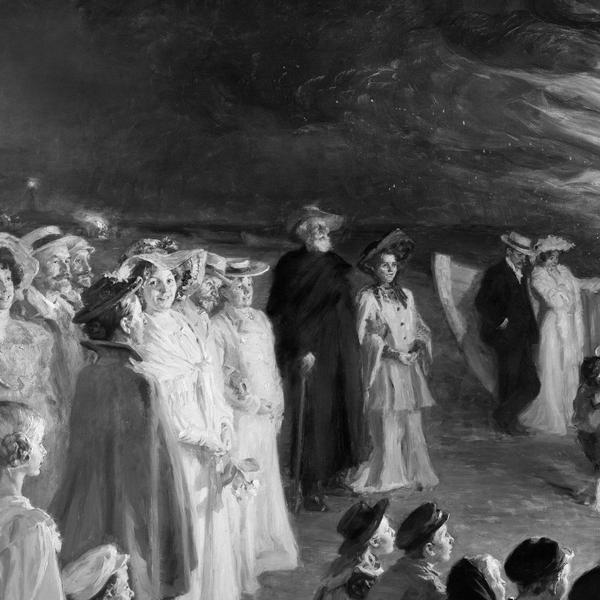The Cleaners From Venus - Volume 3
"Volume 3"

The compilation begins with 1987’s Living With Victoria Grey album, which just might be their best. Bookended by its almost-title-track “Victoria Grey” in taut full-band and campfire singalong versions, it’s one of the most rewarding tracks in the Cleaners’ canon. A rich tangle of chords akin to XTC in their prime (more on whom in a bit), it’s also home to the set’s most transcendent moment - when the enigmatic lyric “She looked so good sometimes it was convincing” gives way to an ethereal guitar break that reaches for the heavens. It’s only five seconds at most, but it’ll stay with you long after disc four finishes. The then-trendy Motown revival even gets a look-in on “Stay On” and “What’s Going On (In Your Heart)”, showing up just how sterile Phil Collins’ dodgy soul covers sounded. Nothing can hold a candle to “The Mercury Girl”, though - a tale of unrequited love, it shows off Newell’s unique way with words (“she’s building me up and knocking me down like a factory chimney in a northern town”) and chugs gracefully over a winding piano line. In anyone else’s hands, it could have even been a hit.
Sadly, it was also the last Cleaners album proper. The rest of Volume Three is dedicated to understated demo collections, many of which were given a little bit of extra polish after a period where Newell gave up songwriting for gardening, as described in touching detail on the plaintive ‘Boy from the Home Counties’. All three discs are more introspective, as if Newell, now recording alone, knew that his days chasing the pop dream - at the age of 37, no less - were numbered. Suitably, Number Thirteen is particularly insular; The ‘Dead End Street’-indebted ‘Street Called Prospect’ looks out of a suburban window at the “skateboard kings” and “beatbox bums,” pining for simpler times; “Here She Crashes” is a sprawling slice of psychedelia that the Brian Jonestown Massacre would be proud to call their own. Meanwhile, the mournful “Minesweeping Memory Lane” speaks for itself. Best of all is the ultracynical ur-modpop stylings of “Man for Our Time”, which sends up a guy who’s “a groove as far as politicians go,” but regardless of his hip credentials (“he’s younger than the youngest Rolling Stone!”), would still “never spare a dime for you or your kind.” Somewhere in Westminster, Tony Blair was neither listening nor taking notes.
The two Wages albums which round the set off - My Back Wages and Extra Wages - see Martin Newell enter the nineties unchanged. Given the grab-bag nature of these two records, they’re not quite as cohesive as other Cleaners LPs - without the pressure of a full-time bands, perhaps Newell was comfortable veering closer towards the throwaway than usual - but there are some real gems to be found here too. “Arcadian Boys” is a dark, Britpop-predicting shuffle which rails against trendy young groups who haven’t earned their crust and “never gave a thought to working daytime,” while the prim-and-proper “When My Ship Comes In” is possibly the most heartfelt courtship plea ever recorded. On Extra Wages, the highlights come back to back; the heartbreaking solo strum “Finding My Own Way Home” soberly reflects on three decades trying to make it, with Newell wandering alone through the streets, having “just lit another cigarette so I could hide behind the smoke.” “Red Guitars and Silver Tambourines”, meanwhile, directs the angst outwards once again at the axe-wielding “pretty boys who would not leave their teens,” over a slow motion Byrds jangle.
Many of the songs on these three demo discs make appearances as fleshed-out classics on Newell’s transcendently good solo album The Greatest Living Englishman. The only trouble is, once you’re used to the versions on that record - recorded by XTC’s Andy Partridge in his humble shed - the bare-bones versions of songs like “Before the Hurricane, Christmas in Suburbia” and especially “She Rings the Changes” (which makes up arguably the best three minutes Newell ever recorded) don’t sound quite right. Not to say the songs themselves aren’t fantastic, but the four-track recordings lack the extra love, care and attention-to-detail that Partridge brought to them. But it’s the most minor of gripes. If you’ve never listened to The Cleaners from Venus, you’re close to exhausting your Television Personalities and Robyn Hitchcock records and you’re desperate for a new pop fix, then you’ve got a lot to discover, and even more to fall in love with. He may not be the greatest living Englishman, but for a while, Martin Newell was the greatest living Lennon. And for that, we can always be thankful.
Get the Best Fit take on the week in music direct to your inbox every Friday

Taylor Swift
The Tortured Poets Department

Chanel Beads
Your Day Will Come

Lucy Rose
This Ain't The Way You Go Out





